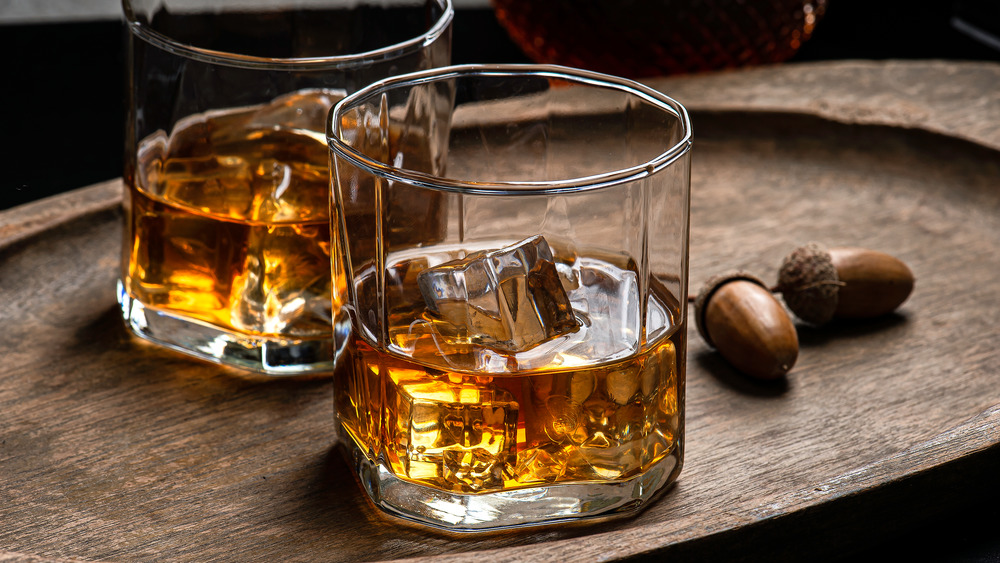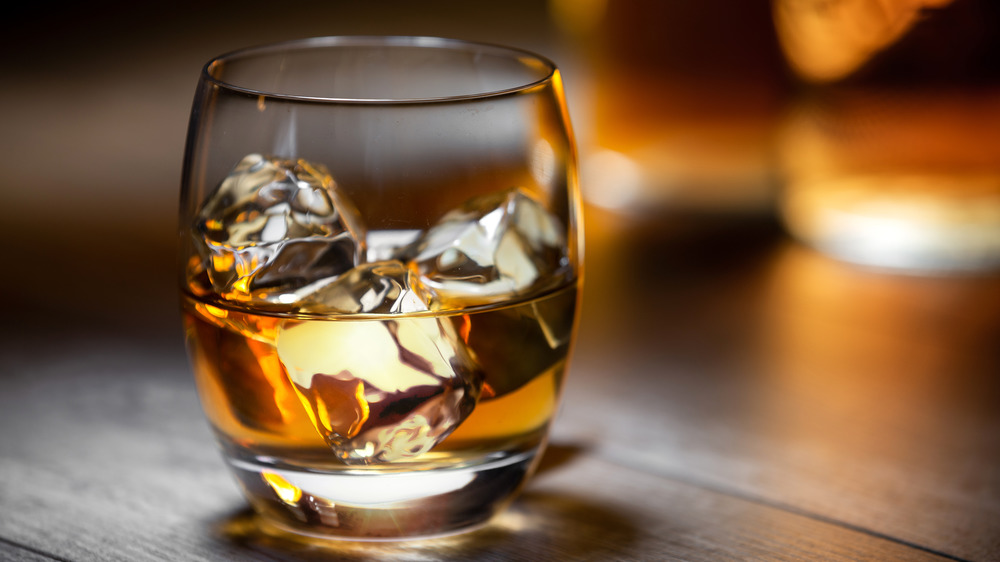The Real Difference Between Bourbon And Scotch
If you've always got a fully-stocked bar cart at the ready, you probably already know all the small ways bourbon and scotch are different from each other. But if you consider yourself to be more of a wine drinker, then these two whiskey varieties might seem like they're practically the same. There are a few key differences between the two, however, and once you know the specifics of what makes each one unique, you'll have an easier time deciding between the two.
According to Healthline, all whiskey is made from mashed and fermented grains, which can include wheat, corn, rye, and barley. Bourbon mainly uses corn mash, and is only produced in the US. Regulations specify that in order to be considered bourbon, the whiskey has to be made from a grain mash that's at least 51 percent corn, then aged in charred oak containers. Bourbon doesn't have a minimum aging period, but if it's been aged for less than four years, the label has to specify how many years it's been aged.
Bourbon has a unique flavor, distinct from scotch and other whiskeys. As Food and Wine explains, bourbon usually has an oaky flavor with notes of vanilla, and it largely develops this taste thanks to the barrels in which it ages. While bourbon doesn't have a minimum requirement for aging, in order to be called straight bourbon, it has to age for at least two years and not contain any added coloring or flavoring.
How is scotch different from bourbon?
Bourbon doesn't have to come from Kentucky, but it does have to be produced in the United States, and scotch has similar restrictions. According to Thrillist, scotch is whisky (yes, spelled minus the "e") that's been produced and distilled in Scotland, and can't legally be called "scotch" unless it was completely produced there. Scotch primarily uses barley for its grain, and, as Eater notes, the barley is malted and heated over a peat fire to give the whisky its unique flavor. Scotch tastes smokier than bourbon.
Scotch also goes through a different aging process compared to bourbon, according to Food and Wine. While bourbon doesn't have a minimum aging requirement, scotch does — it has to be aged for at least three years, and it tends to be aged for even longer, with some popular brands staying in the barrel for 12 to 25 years. Finally, there are several different types of scotch, too. You can find single-malt scotch, which is made at a single distillery, or blended whisky, which mixes a few single malts and other whiskies together in column stills. If you're not much of a whiskey (or whisky) drinker normally, you're probably best off starting with bourbon over scotch. According to Thrillist, it's not a great starting point for amateurs because of its signature bite, but as you appreciate whiskey more, you might find that scotch can be an even richer taste experience than bourbon.

